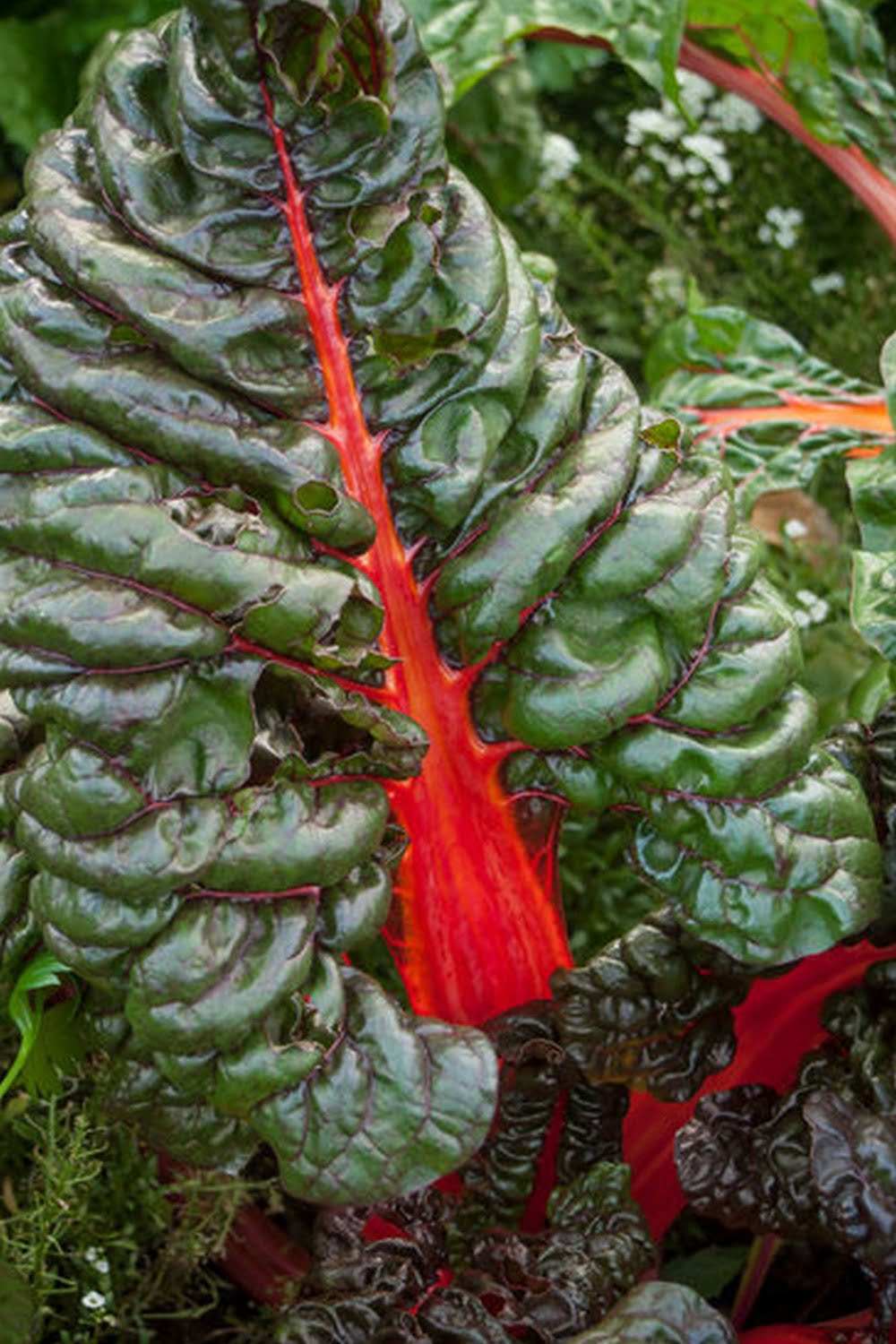Are you interested in growing your own fruits and vegetables, but don’t know where to start? Look no further. In this article, we will provide you with essential tips on organic vegetable gardening so you can embark on a rewarding and sustainable journey.
Organic vegetable gardening involves growing plants without the use of synthetic fertilizers, pesticides, or genetically modified organisms (GMOs). Instead, it focuses on using natural methods and materials to promote healthy soil and plant growth. By choosing organic gardening, beginners can discover the joy of producing their own delicious and nutritious homegrown produce.
Not only does organic vegetable gardening enable you to have control over the quality of your food, but it also brings numerous benefits to your health, sustainability, and the environment. In this guide, we will explore these benefits in detail along with practical advice on getting started with organic vegetable gardening.
So, if you’re ready to embrace a greener lifestyle and enjoy the satisfaction of harvesting your own fresh vegetables from your backyard, continue reading our article for valuable tips and tricks for successful organic vegetable gardening.
The Benefits of Organic Vegetable Gardening
Organic vegetable gardening offers a wide range of benefits, not only for the individual gardener but also for the environment and the overall sustainability of our food system. By choosing to grow your vegetables organically, you can enjoy numerous advantages that contribute to your health, the well-being of the planet, and a more sustainable future.
Health Benefits:
1. Nutrient-rich produce: Organic vegetables are grown without synthetic fertilizers, pesticides, or genetically modified organisms (GMOs), resulting in higher nutrient content compared to conventionally grown counterparts. This means that by consuming organic vegetables from your garden, you are nourishing your body with essential vitamins, minerals, and antioxidants that support your overall health and well-being.
2. Reduction of chemical exposure: By avoiding the use of harmful pesticides and herbicides in your garden, you minimize your exposure to toxic chemicals. These chemicals have been linked to various health issues such as respiratory problems, hormonal imbalances, and even certain types of cancer. Organic gardening eliminates this risk and provides you with safe and healthy produce.
Sustainability Benefits:
1. Environmental conservation: Organic vegetable gardening promotes environmental conservation by maintaining soil fertility and minimizing water pollution. Organic practices focus on building healthy soil through composting, crop rotation, and natural fertilizers. This helps preserve soil structure and biodiversity while preventing erosion and water runoff into nearby rivers or streams.
2. Water conservation: Compared to conventional agriculture methods that often rely heavily on irrigation systems, organic vegetable gardening encourages water conservation. Techniques such as mulching help retain moisture in the soil, reducing water needs during dry periods. Additionally, promoting plant diversity in an organic garden creates a microclimate that conserves moisture even further.
Environmental Impact:
1. Reduced carbon footprint: Organic vegetable gardening plays a vital role in reducing greenhouse gas emissions associated with commercial food production and transportation. By growing your own vegetables at home without relying on long-distance transport or industrial methods such as excessive fossil fuel use, you significantly reduce your carbon footprint and contribute to a healthier environment.
2. Preserving biodiversity: Organic gardening supports biodiversity by promoting the growth of native plants and attracting beneficial insects, birds, and pollinators. This creates a balanced ecosystem within your garden, where different species work together to control pests naturally and improve overall crop yields. By preserving biodiversity, organic vegetable gardening helps maintain the delicate balance of our natural ecosystems.
Getting Started
When starting your organic vegetable garden, one of the most important aspects to consider is choosing the right location. The success of your garden relies heavily on the environmental conditions it is exposed to. Here are some tips for selecting the perfect spot to grow your organic vegetables:
- Sunlight Requirements: Most vegetables require at least 6-8 hours of direct sunlight per day to thrive. Before selecting a location, observe how sunlight moves across your yard throughout the day. Identify areas that receive maximum sun exposure and minimal shade.
- Soil Quality: Healthy soil is crucial for growing organic vegetables. Test the soil in different areas of your yard to determine its quality and composition. Look for well-draining soil that is rich in organic matter. Avoid areas with compacted or rocky soil, as it can hinder root growth.
- Accessibility: Consider how accessible your chosen location is in terms of water source and proximity to your home. You want a spot that is convenient for watering and easily accessible for regular maintenance tasks like weeding and harvesting.
- Wind Protection: Strong winds can damage delicate plants, so it’s important to find a location that provides some natural wind protection. Fences, hedges, or nearby structures can act as windbreaks and help create a more favorable microclimate for your garden.
Once you have found an ideal location based on these factors, you can proceed with preparing the soil and implementing other necessary steps to create a successful organic vegetable garden. Remember that proper planning at the beginning will set you up for a rewarding gardening experience in the long run.
Preparing the Soil
One of the most crucial steps in organic vegetable gardening is preparing the soil. This process creates a nutrient-rich environment that promotes healthy plant growth and maximizes your vegetable yield. By following these essential steps, beginner gardeners can ensure that their plants have the best possible start.
Firstly, it’s important to test the soil before planting your vegetables. This will help you determine its pH level and nutrient content. You can purchase a soil testing kit from a local garden center or send a soil sample to a laboratory for more accurate results. Once you know the pH level of your soil, you can make any necessary adjustments to ensure it falls within the optimal range for vegetable growth.
Next, it’s time to amend the soil by adding organic matter. Organic matter improves soil structure and provides essential nutrients for your plants. Some common sources of organic matter include compost, well-rotted manure, and leaf mold. Spread a layer of organic matter over the topsoil and use a garden fork or tiller to mix it thoroughly into the existing soil.
After incorporating organic matter into the soil, consider adding additional nutrients through organic fertilizers. Organic fertilizers are derived from natural sources like bone meal, kelp meal, and fish emulsion. These slow-release fertilizers provide a steady supply of nutrients throughout the growing season without harmful chemical additives.
Lastly, ensure proper drainage in your vegetable garden by amending heavy soils with sand or perlite to improve their texture and increase airflow. Adequate draining prevents waterlogged roots and reduces the risk of disease in your plants.
By taking these essential steps to prepare your soil properly, you are providing a solid foundation for successful organic vegetable gardening. Nutrient-rich soil helps plants establish strong root systems and encourages vigorous growth throughout their lifecycle. With healthy soil as a starting point, you are well on your way to a thriving organic vegetable garden.
Selecting the Right Vegetables
Once you have chosen the location for your organic vegetable garden and prepared the soil, it is time to select the right vegetables to grow. As a beginner, it is important to choose easy-to-grow organic varieties that require minimal maintenance and are more likely to be successful in your garden. Here are some tips on selecting the right vegetables for your organic garden:
Consider Your Climate
Before choosing the vegetables for your garden, it is essential to consider the climate of your area. Some vegetables thrive in cool weather, while others prefer warm weather. Research which vegetables are best suited for your specific climate and growing season.
Start with Hardy Vegetables
As a beginner, it’s best to start with hardy varieties that can withstand less-than-ideal conditions. Examples of hardy vegetables include tomatoes, cucumbers, zucchini, lettuce, spinach, radishes, and carrots. These vegetables are generally easy to grow and tend to be more forgiving if you make mistakes in caring for them.
Choose Disease-Resistant Varieties
To avoid potential issues with diseases in your organic garden, look for disease-resistant varieties of vegetables. These varieties have been bred specifically to resist common diseases that can affect crops. Disease-resistant plants are more likely to survive and produce a bountiful harvest.
Consider Space Requirements
Take into account the space available in your garden when selecting vegetables. Some plants require more room to grow than others. If you have limited space or are planning on container gardening, choose vegetable varieties that are well-suited for small spaces such as bush beans or cherry tomatoes.
By considering these factors when selecting vegetables for your organic garden, you will increase your chances of success as a beginner gardener. Take some time to research different varieties and choose those that align with your climate and space limitations. Starting with easy-to-grow organic vegetables will give you the confidence to continue expanding your garden and trying new varieties in the future.
Planting and Care Tips
Planting and caring for your vegetable garden is a crucial step in ensuring the success and health of your plants. By following best practices for planting, watering, and mulching, you can provide the optimal conditions for your vegetables to grow and thrive. This section will provide some essential tips on how to properly plant, water, and mulch your organic vegetables.
Proper Planting Techniques
When it comes to planting your organic vegetables, there are a few key principles to keep in mind. First, ensure that you are planting at the right time for each specific vegetable variety. Some vegetables thrive in cooler weather while others prefer warmer temperatures. It’s important to do some research and understand the optimal planting times for the vegetables you’ve selected.
Next, make sure you are giving each plant enough space to grow properly. Crowding plants too closely together can lead to poor air circulation and increased susceptibility to diseases. Be mindful of the recommended spacing for each vegetable and adjust accordingly.
Lastly, take care when handling seedlings or transplanting young plants to avoid damaging their delicate roots. Dig a hole slightly larger than the root ball of the plant and gently place it in, making sure that it is planted at the same depth as it was in its nursery container.
Watering Techniques
Watering is critical for the health of your vegetable garden, but it’s important to strike a balance between providing enough water without overwatering. The key is to ensure that your plants receive consistent moisture without becoming waterlogged.
One effective method is deep watering – providing a thorough soaking that encourages deep root growth rather than frequent shallow waterings. Water deeply at the base of each plant, rather than overhead watering which can lead to fungal diseases.
Regular monitoring of soil moisture is crucial as different factors like temperature and rainfall levels can affect watering needs. Check soil moisture by inserting your finger or a small handheld moisture meter into the soil to determine if watering is necessary.
Mulching Benefits
Mulching your vegetable garden offers numerous benefits for both your plants and the soil. Mulch helps to retain moisture, suppress weeds, regulate soil temperature, and enhance overall plant health.
To mulch your vegetables, spread a layer of organic materials such as straw, shredded leaves, or compost around the base of each plant. Keep the mulch around 2-3 inches thick, ensuring that it doesn’t touch the stems or trunks of your plants as this can lead to rot and disease. Replenish or replace the mulch as needed throughout the growing season.
By planting properly, employing effective watering techniques, and using mulch in your organic vegetable garden, you are providing the optimal care for your plants. These best practices will help support healthy growth and maximize yields while minimizing the risk of pests and diseases.
Natural Pest and Weed Control
One of the key factors in maintaining a successful organic vegetable garden is controlling pests and weeds in a natural and eco-friendly way. By avoiding the use of synthetic pesticides and herbicides, you can ensure that your garden remains healthy and safe for both you and the environment. In this section, we will discuss some effective methods for natural pest and weed control that you can implement in your own organic garden.
1. Companion planting: One strategy for pest control is to practice companion planting, which involves growing certain plants together to deter pests. For example, marigolds are known to repel aphids, nematodes, and other harmful insects when planted near vegetables such as tomatoes or cucumbers. Similarly, planting garlic or onions near brassicas like cabbage or broccoli can help prevent cabbage worms and aphids.
2. Handpicking: Another simple yet effective method to control pests is handpicking them off your plants. This method is particularly useful for larger insects like beetles or caterpillars. Regularly inspecting your plants for signs of infestation and manually removing any pests can significantly reduce their population and minimize damage to your crops.
3. Mulching: Applying a layer of organic mulch around your plants helps suppress weed growth by blocking sunlight and conserving soil moisture. Additionally, certain types of mulch like straw or shredded leaves can create an unfavorable environment for weed seeds to germinate. Make sure to spread a thick layer (about 2-4 inches) of mulch around your vegetables while leaving some space around the stems to prevent rotting.
Natural Pest Control Methods
| Method | Description |
|---|---|
| Companion Planting | Planting certain species together to discourage pests. |
| Handpicking | Manually removing pests from plants. |
| Mulching | Applying organic mulch to suppress weed growth and deter pests. |
By incorporating these natural pest and weed control methods in your organic vegetable garden, you can create a balanced and thriving ecosystem that requires minimal intervention. Remember to regularly monitor your plants for any signs of pest or weed issues, as early detection is key in preventing infestations from spreading. Armed with these eco-friendly techniques, you can protect your organic garden while ensuring the health of both your plants and the environment.
Maximizing Your Harvest
When it comes to organic vegetable gardening, one of the most rewarding aspects is the ability to harvest your own fresh and nutritious produce. However, harvesting vegetables at the right time and in the correct manner is crucial to ensure a bountiful crop. Here are some tips to help you maximize your harvest and enjoy the fruits of your labor:
- Timing is everything: Different vegetables have different maturity periods, so it’s important to know when each variety is ready for harvest. For example, leafy greens like lettuce and spinach can be harvested when they reach the desired size, while root vegetables such as carrots and radishes should be harvested when they have reached their full size but before they become overgrown or woody.
- Handle with care: It’s important to handle your vegetables gently during harvest to avoid damaging them. Use a sharp knife or garden shears to cut the vegetables from their stems or vines, rather than pulling them out forcefully. This will help minimize any damage to the plant and reduce the risk of disease or pest infestation.
- Harvest regularly: Regularly harvesting your vegetables not only ensures that you enjoy them at their peak freshness but also encourages more production from your plants. Many vegetables, such as tomatoes and beans, will continue producing new fruits if harvested regularly. Be sure to check your plants every few days and remove any ripe produce promptly.
| Harvesting Tips |
|---|
| Timing: Know when each vegetable is ready for harvest |
| Handling: Gently cut vegetables from their stems or vines |
| Regular Harvest: Check plants frequently and remove ripened produce |
Troubleshooting Common Issues
Dealing with pests, diseases, and nutrient deficiencies is a common challenge for organic vegetable gardeners. However, there are effective strategies that can help you address these issues while maintaining an organic approach. By being proactive and implementing preventive measures, you can ensure the health and productivity of your organic garden.
One of the most important aspects of pest and disease control in organic gardening is maintaining a balanced ecosystem. This means encouraging biodiversity by planting a variety of different plants in your garden. By doing so, you create a natural balance that helps to minimize outbreaks of pests and diseases. Additionally, consider attracting beneficial insects such as ladybugs and lacewings, which are natural predators for many common garden pests.
When it comes to nutrient deficiencies in your organic garden, soil preparation plays a crucial role. Before planting, conduct a soil test to determine any potential nutrient imbalances or deficiencies. Based on the results, tailor your fertilization approach using organic amendments such as compost or well-rotted manure. Regularly add compost to your garden beds to replenish nutrients naturally and improve soil structure.
Another method for dealing with common issues in organic gardening is practicing good sanitation habits. Remove any diseased plant material from the garden as soon as you notice it to prevent the spread of disease. Additionally, clean your tools regularly to avoid cross-contamination between plants.
By implementing these troubleshooting strategies, you can effectively address pests, diseases, and nutrient deficiencies in your organic vegetable garden without resorting to synthetic chemicals or harmful pesticides. Remember to stay vigilant and monitor your plants regularly for signs of trouble so that you can take action early on if needed. With proper care and attention, you will be rewarded with healthy and bountiful crops from your organic gardening endeavors.
Conclusion
In conclusion, organic vegetable gardening is a rewarding and sustainable hobby that offers numerous benefits to both individuals and the environment. By choosing to grow your own vegetables organically, you are taking a step towards improving your health, promoting sustainability, and reducing your environmental impact. Through proper preparation of soil, careful selection of vegetables, and implementing eco-friendly pest and weed control methods, you can create a thriving organic garden.
One of the key benefits of organic vegetable gardening is improved health. By growing your own vegetables without the use of harmful chemicals or pesticides, you can ensure that your produce is fresh, nutritious, and free from harmful residues.
Organic vegetables are known to have higher levels of beneficial nutrients such as vitamins and minerals compared to conventionally grown ones. Additionally, by consuming homegrown organic food, you reduce your exposure to potential toxins that may be present in commercially produced vegetables.
Furthermore, embracing organic vegetable gardening supports sustainability efforts. By growing your own food, you contribute to reducing the carbon footprint associated with transporting and packaging store-bought produce. Additionally, organic farming practices help preserve soil health, protect water sources from contamination due to chemical runoff, and promote biodiversity by creating habitats for beneficial insects and wildlife.
In conclusion, organic vegetable gardening is not only a rewarding pastime but also an impactful way to improve personal well-being while contributing positively to the environment. By following the tips outlined in this article and embracing organic gardening principles, even beginners can enjoy successful harvests of nutrient-rich vegetables while actively participating in sustainable practices. So why not start your own organic vegetable garden today?

If you’re looking to get into vegetable gardening, or are just looking for some tips on how to make your current garden better, then you’ve come to the right place! My name is Ethel and I have been gardening for years. In this blog, I’m going to share with you some of my best tips on how to create a successful vegetable garden.





